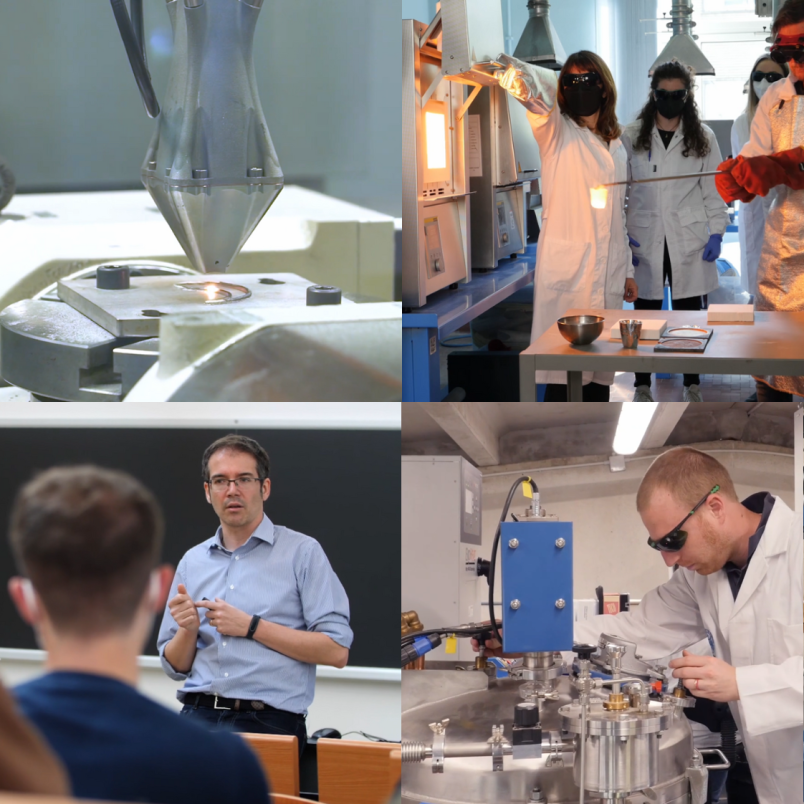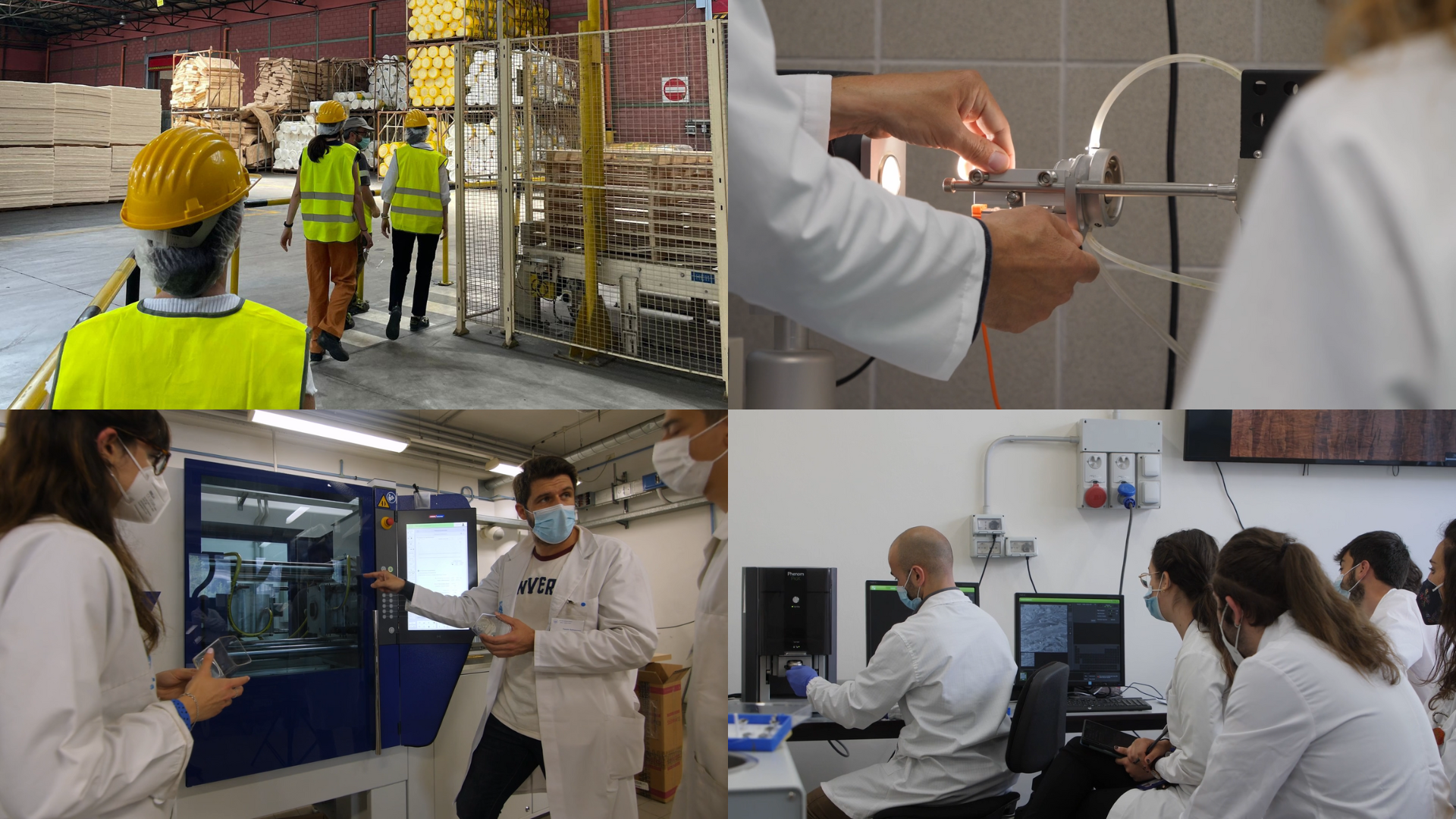
Materials Engineering covers a broad range of applications and industries, such as advanced materials, advanced manufacturing, energy industry, transport & aerospace industries, biomedical industry, semiconductors, photonics & telecommunications, textile industry, etc.
Thanks to this strongly inter- and multi-disciplinary Master's degree programme, you will learn how to design more performant, cost-competitive and sustainable advanced materials according to their final application and how to produce and process them with the most recent advanced manufacturing techniques.
The Materials Engineering for Industry 4.0 MSc programme offers three speclaist tracks: Materials Engineering for Advanced Manufacturing (English-taught), where you can focus on materials and innovative sustainable processes, such as additive manufacturing, surface technology, joining techniques, etc.; Structural Materials, targeted to materials for the energy, transport & aerospace industries and Functional Materials, where you can explore materials for electronic devices, biomaterials, nanomaterials and nanotechnologies (both held mainly in Italian Language).
The three specialist tracks have a common core path in which you will learn about the three main classes of materials (metals, polymers and ceramics), composite materials and their manufacturing, forming and transformation processes.
The course has a very high teacher/student ratio and involves constant connection with businesses for internships, experimental activities and thesis projects.

The innovative teaching methods adopted in this programme seek to involve studnets actively and collaborativelyin learning, albeit with the same effectiveness as traditional lessons. Active learning, unlike passive learning, means that students are in charge of their own learning, which will be achieved through meaningful activities that promote both a deeper understanding of the topics and the students’ soft skills.
Some examples of methodologies that will be used:
- Learning-by-doing (hands-on and design/simulation projects), e.g. polymer recycling, advanced characterisation techniques, glass-ceramic design, finite element analysis, materials design through thermodynamic simulation, 3D-printing, joining techniques, life cycle assessment, …
- Team-based learning
- Team working, e.g. development of material design projects